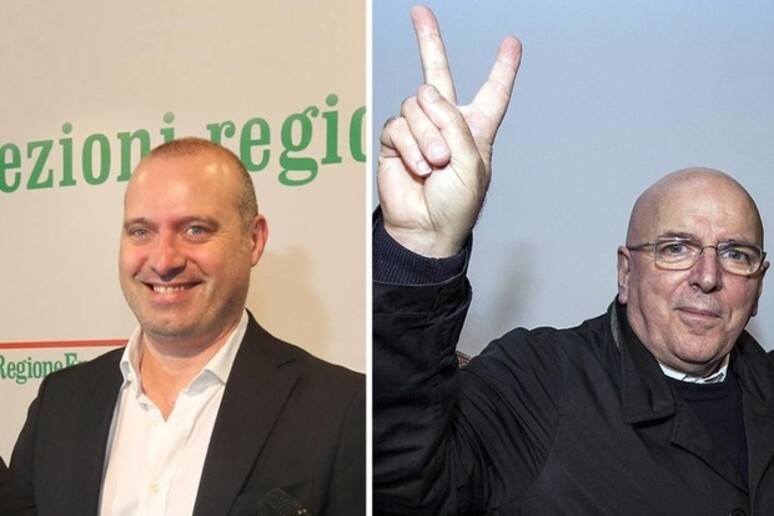Candidates backed by Premier
Matteo Renzi's centre-left Democratic Party (PD) triumphed in
Sunday's regional elections in Emilia-Romagna and Calabria amid
record low voter turnout.
Stefano Bonaccini won in Emilia-Romagna with over 49% of
the vote, compared to almost 30% for the Northern League's Alan
Fabbri, who was backed by centre-right parties.
In Calabria, Mario Gerardo Oliverio was set to win with
over 61%, with most of the count complete, with the
centre-right's Wanda Ferro taking around 23% of the votes.
But turnout was alarmingly low by Italian standards.
In Emilia-Romagna 37.7% of voters cast ballots, compared to 68%
at regional elections in 2010 and 70% in May's European
elections.
In Calabria the turnout was 44.1%, compared to 59.3% at the
previous regional elections and 45.5% in the European elections.
"Turnout bad, results good," tweeted Renzi. "A clear 2-0".
He went on to say Monday that the low turnout was not of
primary significance.
"The fact that turnout was not big is something to worry
about, but it's secondary," he told a press conference in Vienna
after meeting Austrian Chancellor Werner Faymann.
"I'm not interested in planting flags, but in tackling the
problems of the Italian people".
However, added the premier, all of Italy's political
parties must reflect on the low turnout.
"The abstention rate is very high and that should make all
the parties reflect," said Renzi. "But the result went very well
for the PD. It's a clear win," he added.
His government's reformist agenda will not change, said the
premier.
"We said beforehand that it wasn't a referendum on the
government," Renzi told RAI radio.
"Even more so following this clear result. The government's
agenda isn't changing, although we are aware that, if we all get
rid of the culture of whimpering, Italy has a role to play".
Renzi added he is undaunted by the growing popularity of
the separatist Northern League under new leader Matteo Salvini
after it claimed over 20% of the vote in Emilia-Romagna.
"While the centre-right discusses its plight, we are
changing Italy. After 20 years of failures, including those of
the League, we are working for the country and come election
time, you'll see which is stronger," Renzi said.
Earlier on Monday, Salvini, who became head of the League
almost a year ago, said the Renzi "balloon is deflating" while
the League was "flying".
One loser on Sunday was the anti-establishment 5-Star
Movement (M5S), which took a serious hit, failing to win a
single seat in the Calabria regional assembly and seeing its
share of the total vote fall, according to a near-final count
released Monday.
The anti-establishment party won about 4.88% of the vote,
well down from its 21.5% share in the May vote for European
Parliament, according to results.
Earlier, its leader Beppe Grillo had boasted that his M5S
has improved its percentage of votes in regional balloting in
Italy's central Emilia-Romagna region.
In a post on his blog, Grillo attributed the debacle to the
fact that in his view, citizens were rejecting government
policy, which reflects the country's "lost democracy".
Overall, the M5S increased its total number of votes in
Emilia-Romagna, winning about 159,400 votes compared with more
than 126,600 votes in a 2010 regional election.
Grillo said that in absolute terms, all of the other major
parties lost voters, with ex-premier Silvio Berlusconi's Forza
Italia (FI) taking possibly the greatest hit, dropping from
about 500,000 votes in 2010 to 100,500.
A prominent MP from within Berlusconi's party chose to use
the electoral debacle as a call for action. FI, which failed to
reach the 10% mark in Emilia-Romagna, must be revamped, MP
Raffaele Fitto said Monday.
"Enough of this ambiguous, incomprehensible political
line, one that oscillates between extremes of total submission
to the (center-left) government and outright insults," said
Fitto, berating the fact that his party was outstripped by the
Northern League, a former government ally under previous
Berlusconi administrations.
"At the very least, we must get rid of all our candidates
in order to get off to a new start and a true phase of renewal,"
said Fitto, a one-time confidant of Berlusconi who now leads a
dissenting minority within the party that is not happy with the
fact that the ex-premier has entered into negotiations over
electoral law reform with Renzi.
Berlusconi said earlier this month that he would work on
"relaunching and refounding FI" and that he has "recovered
unity" with Fitto.
"I sincerely hope no one will dare minimize or seek alibis
for the dramatic results in Calabria and Emilia Romagna," Fitto
said.
ALL RIGHTS RESERVED © Copyright ANSA











